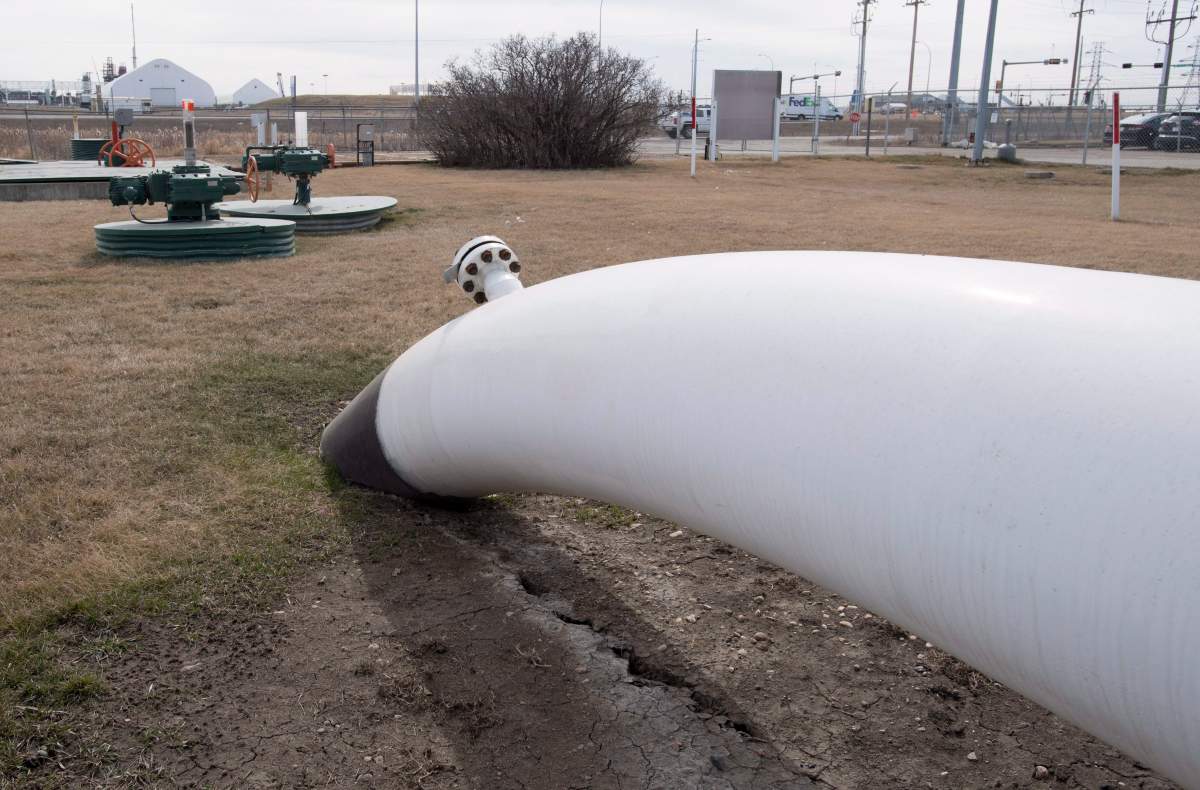To no one’s surprise, the federal government is intervening in B.C.’s constitutional reference case on who – a province or Ottawa – has jurisdictional authority over interprovincial pipelines and what flows out of them.

The outcome of the case has the potential of altering the constitutional makeup of Canada, thus changing federalism as we have come to know it.
That scenario may well occur if the B.C. government ultimately wins the reference case it put in front of the B.C. Court of Appeal last week. In it, the NDP government wants the court to rule on whether or not it can regulate – or bar – heavy oil shipments that arrive in B.C. from another province.
If the court — and ultimately it will likely be up to the Supreme Court of Canada for a final judgment – sides with B.C., it could fundamentally alter the balance of power in the country.
Depending on how a high court defines a B.C. victory, provinces could possibly have the power to pretty well block any substance or commodity and any project from coming within its boundaries, no matter how many times the federal government may have ruled otherwise.
The federal environmental review process could become redundant, as would the National Energy Board. Since it can be argued pretty well anything has an impact on the environment, the enshrinement into law of a province’s right to protect its environment over the desires of the federal government could quickly erode federal authority regarding all kinds of projects, energy-related ones and otherwise.
It would be a landmark and historic ruling. Of course, we are a long way from that ruling and many (although certainly not all) constitutional experts give B.C. little chance of winning its argument.
- Liberals survive confidence vote as House passes budget implementation bill
- Alberta budget 2026 comes with spending hikes but $9.4B deficit
- Poilievre calls Trump’s Canada attacks ‘wrong,’ urges U.S. trade stability
- Liberal, Bloc Québécois rematch in Terrebonne riding after Supreme Court nixes result
Still, the possibility of victory remains a potential outcome, and that has a number of folks quite worried.
Alberta Premier Rachel Notley, for example, has said a legal victory by the B.C. NDP government would be an economic disaster for the entire country. She could very well be correct.

Get daily National news
“The powers that they are seeking through this court reference are a recipe for economic gridlock,” Notley said, noting other provinces could claim similar powers and tie up the flow of all kinds of goods.
The B.C. government, for its part, has dismissed such concerns as overblown rhetoric, and insists this whole controversy is simply about a province trying to protect its coastline from possible environmental destruction.
Still, more than one observer has noted the B.C. government is doing nothing about the 26 million barrels of bitumen that already flow each year through B.C. via pipelines and railcars. About 22 million of those barrels come through the existing Trans Mountain pipeline, and are loaded onto tankers that sail through B.C. waters. So far, not a single spill.
Notley seized on this inconsistency (some may call it hypocrisy) and pointed out “if bitumen was so hazardous, why would we only be looking at the incremental bitumen in the new pipeline?”
Indeed: a bitumen spill is a bitumen spill is a bitumen spill. Yet the B.C. NDP government apparently thinks such a spill that occurs with the existing pipeline is a risk worth taking, which raises the question of just how sincere the government’s opposition to the KM pipeline really is.
In fact, there is a widespread theory that the B.C. government has narrowed its opposition to this single reference court case just so it can say that it did all it could to block the pipeline project, even if it goes ahead.
READ MORE: B.C. government asking courts to rule on new permitting system to restrict bitumen flow
Further muddying this potential breakdown of federalism is the Saskatchewan government, which last week launched its own reference case challenging the federal government’s power to impose a carbon tax on the province.
This move came after Saskatchewan Premier Scott Moe threatened to follow Alberta’s lead and turn off the oil taps to B.C. (talk about inconsistency: Saskatchewan wants Ottawa to retain its constitutional rights regarding pipelines, but not on taxes).
No doubt cheering both provinces on are many Quebeckers, most of whom would dearly love to see a substantially weakened central federal government.
The pipeline issue is turning provinces against each other, and against the federal government. Who knows what effect this critical impasse will have on Confederation, and whether it will lead to a balkanization of the country.
In B.C., and in the rest of the country, public opinion is firmly on the side of building the pipeline. A series polls reflect those feelings (in fact, hard-core opposition to the pipeline hovers around just 20 per cent of the population).
Opposing the KM pipeline is either the biggest example of NIMBYism we have ever seen in this country, or it is a passionate defense of environmental values.
Depending on the outcome of this case, the federal government will come out of this imbroglio stronger than ever, or forever weakened.
Keith Baldrey is chief political reporter for Global BC. This is reprinted from his weekly column with Glacier Media.








Comments
Want to discuss? Please read our Commenting Policy first.